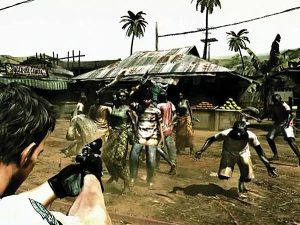
When I worked for Wizards of the Coast, handling support for Magic: The Gathering, there was a common belief that we released too many card-sets, too rapidly. The cries were frequently forms of "You are forcing me buy too many cards, I can't keep up."
The key word..."forcing"
Even the lightest application of reason concludes that we weren't forcing anyone to do anything. Entertainment products are not a "need", they are a "want", and as such optional. We weren't selling insulin to diabetics, we were selling slips of cardboard to teenagers.
That said, the hobby game industry was the beneficiary (and possibly the originator) of what we called the Repeat Purchase Model. For hobby games, it started with Role Playing Games. You purchased the basic set, books, or whatever, and the fans were treated to extremely regular releases of technically optional, but frequently essential, supplementary material. While fans frequently grumbled about the amount they felt obligated to buy, lack of such material was considered the death of the game.
The Repeat Purchase Model was advanced into hyperdrive by the invention of the Collectible Card Game. Now a single product could be sold over and over again to a single customer. Profits could be made from casual customers and fortunes made from a relatively limited number of fanatics. By establishing a culture where the newest cards replaced, rather than supplemented, the oldest, players were compelled to keep buying lest their investment be compromised. They didn't necessarily want to buy more cards, but if they wanted to keep playing, it was required spending. A Want was transformed into a Need.
The culture that created this system was to some extent accidental. When Magic was new, the game was not perfected and the cards contained errors and flaws that would not come to light until much later. Newer editions fixed, or attempted to fix, these problems through text and rules revisions. Tournament play addressed these problems by limiting what cards would be allowed in the most heavily supported formats. Eventually, older cards and card sets were deemed to be fun, but flawed. Players that did not have access to them felt slighted when playing against those who did. Using old cards was, and is, an offense just short of cheating.
While the culture started off semi-accidentally, it has been embraced by both manufacturers and players as the status-quo. It is now expected that the first editions of a card game will likely be flawed and eventually supplanted by newer, better versions. New cards will replace old. New rules will replace old.
This culture is not without its downside. Players who feel coerced into making purchases do so cognizant of what's going on. They may be spending money now, but the product must deliver EVERY TIME or else they'll get off the merry-go-round, doubtful to return. Once off, the ride is spinning far to quickly to jump back on again with any ease. There's always a new ride (Online MMO's, anyone?) to replace the old one.
With any product, including Virtual World subscriptions, of which I am trying to apply these lessons and theories, the goal is not to make a want feel like a need. There is a backlash when a purchase is made and the perceived need falls short of expectations. Also, its hard to feel good about purchasing something you need.
Wants, on the other hand, are all about feeling good. The customer (or fanatic) is making the choice for themselves. If the product falls short of expectations, as they do from time to time, there is less backlash when the decision to buy is owned by the customer, rather than projected to the publisher.
Virtual Worlds, like Collectible Cards, are entertainment products. They are about fun, and good feelings. Coercion is not the correct tactic. Enticement is.
Want > Need
-Adam!!!
 A compilation of Cory Doctorow penned essays focusing on Copyright, DRM, and technology. Some of the older works (from 2+ years ago) are showing their age. For example, he takes shots at the failures of Amazon's Kindle (1st version) which, at least in part, ring hollow with Kindle 2's release.
A compilation of Cory Doctorow penned essays focusing on Copyright, DRM, and technology. Some of the older works (from 2+ years ago) are showing their age. For example, he takes shots at the failures of Amazon's Kindle (1st version) which, at least in part, ring hollow with Kindle 2's release.















